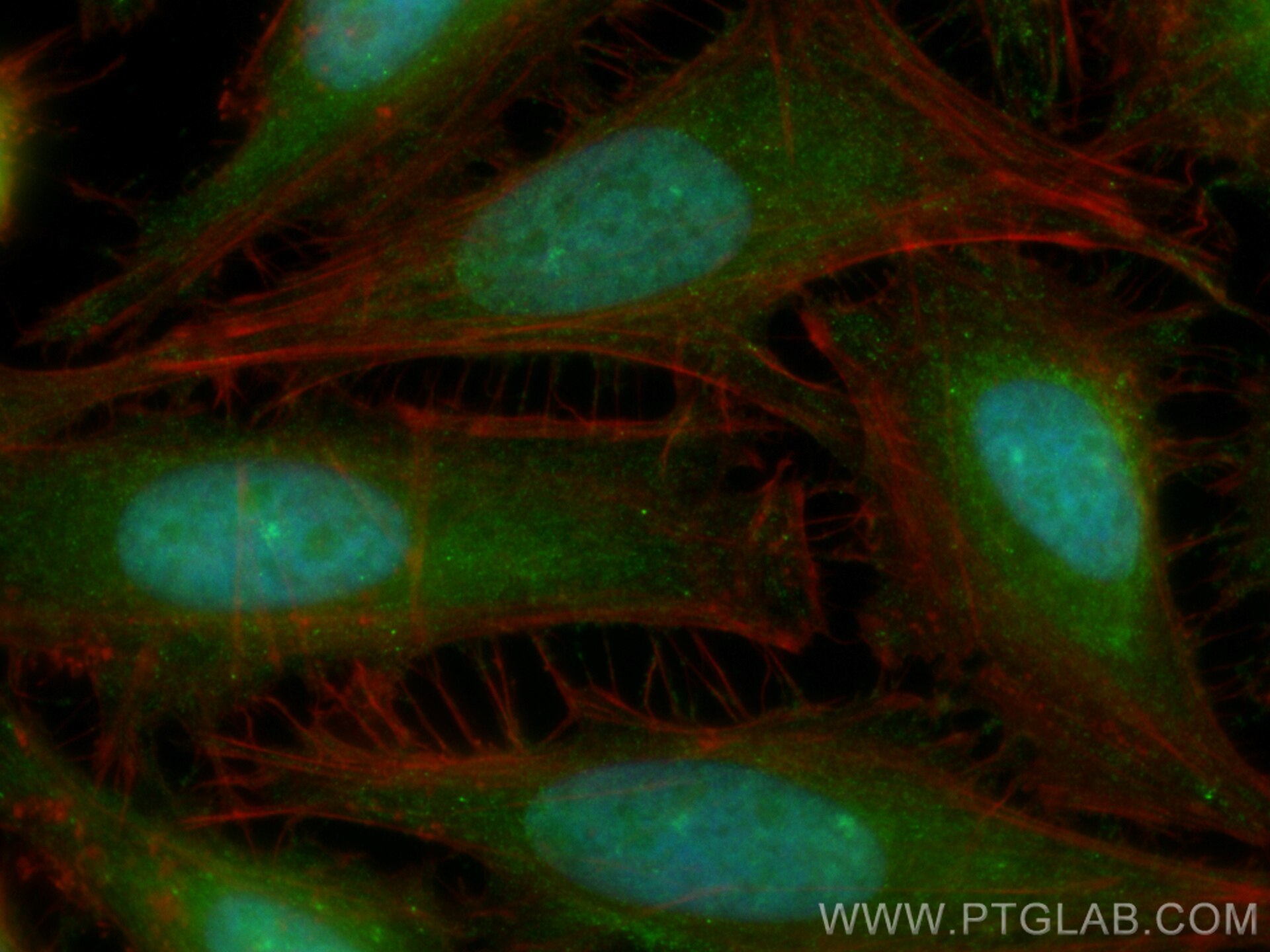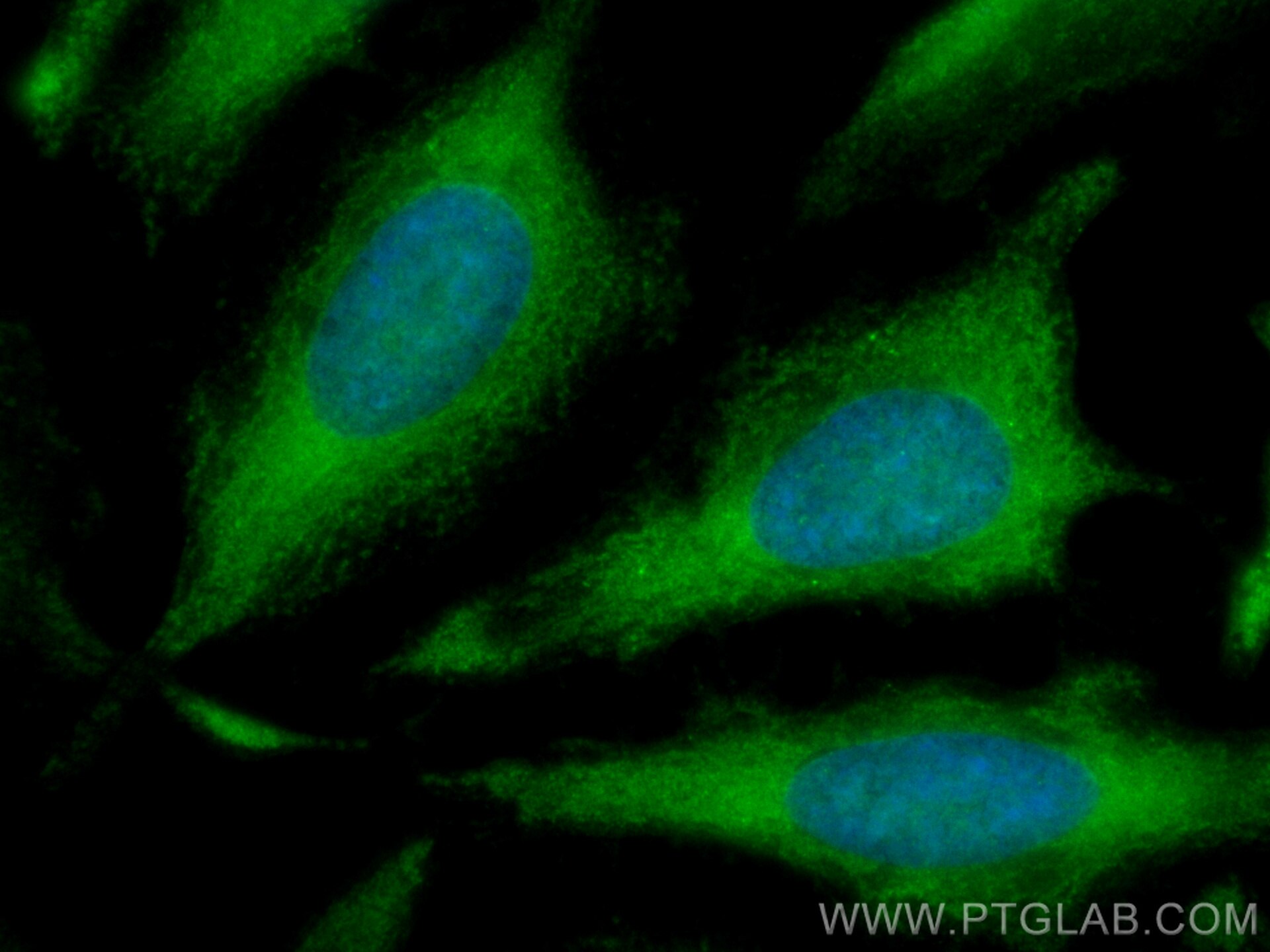Tested Applications
| Positive IF/ICC detected in | HeLa cells |
Recommended dilution
| Application | Dilution |
|---|---|
| Immunofluorescence (IF)/ICC | IF/ICC : 1:50-1:500 |
| It is recommended that this reagent should be titrated in each testing system to obtain optimal results. | |
| Sample-dependent, Check data in validation data gallery. | |
Product Information
CL488-14787 targets CBS in IF/ICC applications and shows reactivity with human, mouse, rat samples.
| Tested Reactivity | human, mouse, rat |
| Host / Isotype | Rabbit / IgG |
| Class | Polyclonal |
| Type | Antibody |
| Immunogen |
CatNo: Ag6437 Product name: Recombinant human CBS protein Source: e coli.-derived, PGEX-4T Tag: GST Domain: 206-551 aa of BC000440 Sequence: VAWRLKNEIPNSHILDQYRNASNPLAHYDTTADEILQQCDGKLDMLVASVGTGGTITGIARKLKEKCPGCRIIGVDPEGSILAEPEELNQTEQTTYEVEGIGYDFIPTVLDRTVVDKWFKSNDEEAFTFARMLIAQEGLLCGGSAGSTVAVAVKAAQELQEGQRCVVILPDSVRNYMTKFLSDRWMLQKGFLKEEDLTEKKPWWWHLRVQELGLSAPLTVLPTITCGHTIEILREKGFDQAPVVDEAGVILGMVTLGNMLSSLLAGKVQPSDQVGKVIYKQFKQIRLTDTLGRLSHILEMDHFALVVHEQIQYHSTGKSSQRQMVFGVVTAIDLLNFVAAQERDQK Predict reactive species |
| Full Name | cystathionine-beta-synthase |
| Calculated Molecular Weight | 61 kDa |
| Observed Molecular Weight | 61-63 kDa |
| GenBank Accession Number | BC000440 |
| Gene Symbol | CBS |
| Gene ID (NCBI) | 875 |
| RRID | AB_2934409 |
| Conjugate | CoraLite® Plus 488 Fluorescent Dye |
| Excitation/Emission Maxima Wavelengths | 493 nm / 522 nm |
| Form | Liquid |
| Purification Method | Antigen affinity purification |
| UNIPROT ID | P35520 |
| Storage Buffer | PBS with 50% glycerol, 0.05% Proclin300, 0.5% BSA, pH 7.3. |
| Storage Conditions | Store at -20°C. Avoid exposure to light. Stable for one year after shipment. Aliquoting is unnecessary for -20oC storage. |
Background Information
The CBS gene encodes cystathionine beta-synthase, which catalyzes the first irreversible step of transsulfuration. The CBS enzyme is a homotetramer of 63-kD subunits and requires pyridoxal phosphate and heme for activity(PMID:11230183). CBS protein is localized in most areas of the brain, but predominantly in the cell bodies and neuronal processes of Purkinje cells and Ammon's horn neurons(PMID:12588964).
Protocols
| Product Specific Protocols | |
|---|---|
| IF protocol for CL Plus 488 CBS antibody CL488-14787 | Download protocol |
| Standard Protocols | |
|---|---|
| Click here to view our Standard Protocols |






